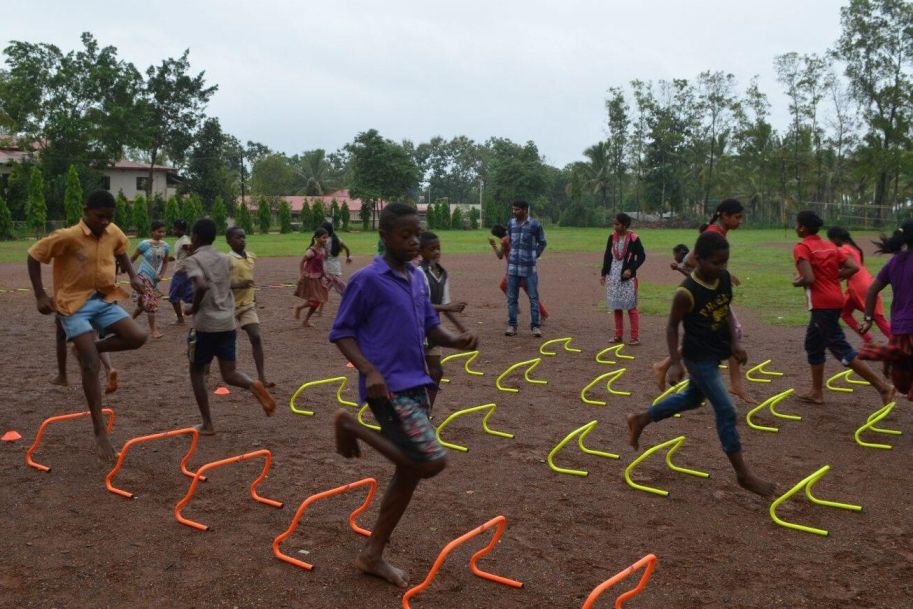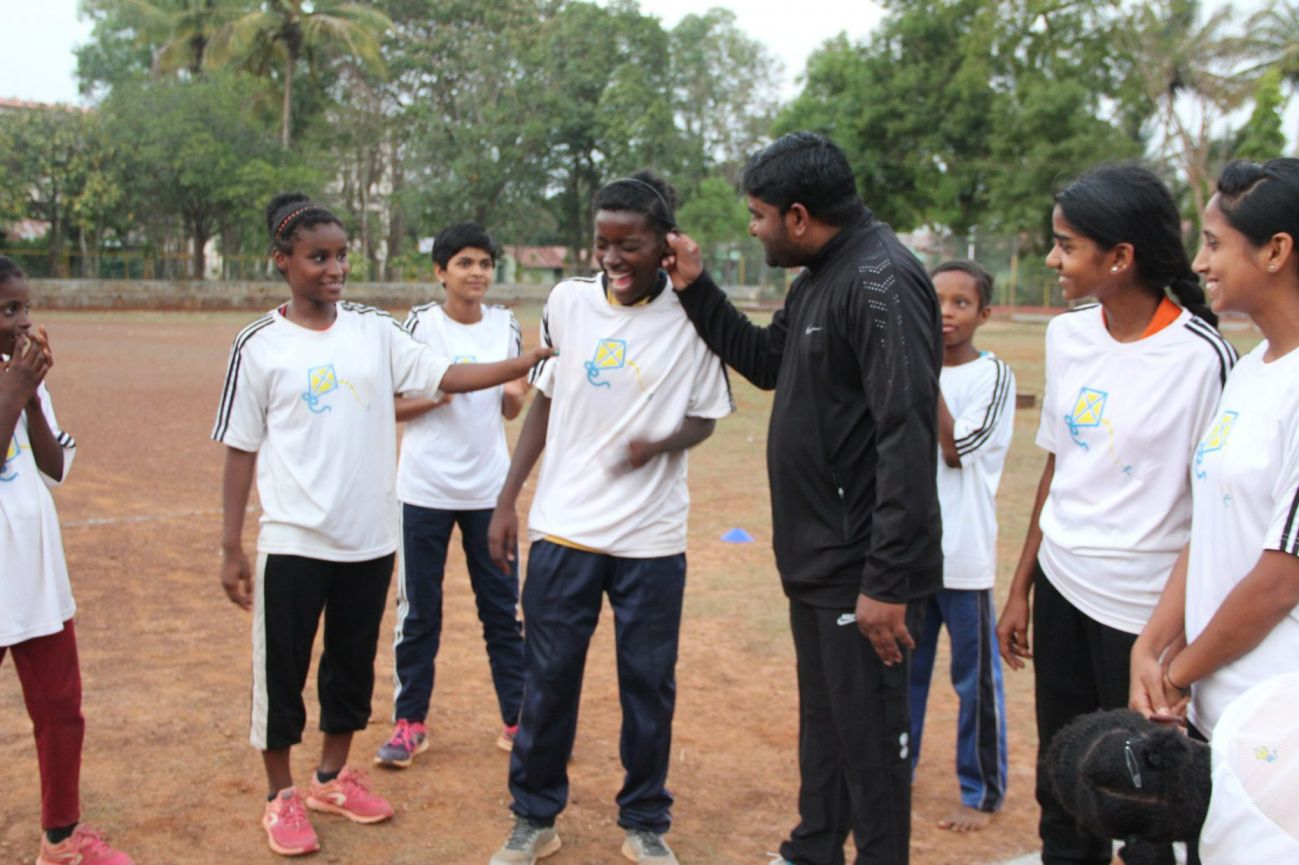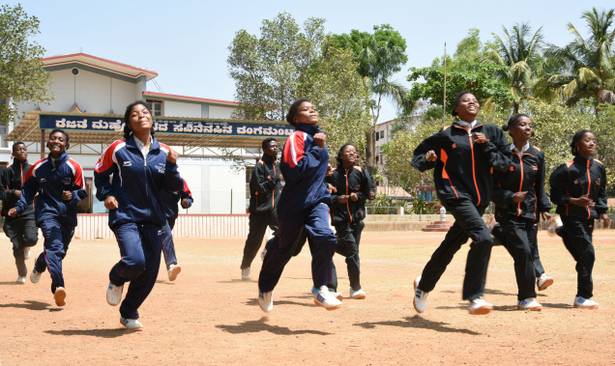#MakingSportWork: We gloat the potential of sport to build a #BetterIndia with opinion pieces, stories and profiles of how sport can modernize the lives of every Indian. Read increasingly from this sectional series by The Largest India and Sports and Society Accelerator here.
Nitish M Chiniwar had set his sights on a career in motorsports. He had worked in garages in Bengaluru, getting his hands dirty as he learned the ins and outs of engines.
Then he moved to the United Kingdom, where he earned his Masters’s in Motorsports Engineering. But when he began interviewing with racing teams, including some F1 teams, he kept hitting the same wall. As a non-European, Chiniwar needed a work visa but none of the teams were willing to sponsor one.
Finding his path unexpectedly obstructed prompted Chiniwar to think tightly well-nigh opportunities, specifically who gets them and who doesn’t. Going lanugo that path led him to a new career.
So, in 2016 he founded Bridges of Sports (BoS), a not-for-profit organisation that is defended to developing the next generation of Indian athletes while moreover creating opportunities for neglected tribal communities to wilt part of mainstream society.
The first polity they worked with was the Siddi polity in Karnataka. The Siddis were brought to India from Africa as slaves over 400 years ago. Without Indian independence, they wound up living untied from mainstream society and have struggled with racism and poverty.
To identify promising young athletes, BoS worked with the Uttara Kannada District Sturdy Association to self-mastery training camps and monitor sturdy competitions wideness all talukas for the U-12, U-14, and U-16 categories. Those athletes who met qualifying standards were then invited to the main residential centre for testing and training to help them develop to their full potential.
“Our focus has unchangingly been to build a hyperlocal sports ecosystem which will not only produce sustainable talent but moreover support the social and economic minutiae of the community,” the now 32-year-old Chiniwar says. “Over the years, we are seeing the results of our strategy and the opportunities for the model to be replicated at scale.”
Currently, the organisation has 25 children enrolled in their track-and-field centre of excellence in Mundgod, Karnataka, and is in the process of supporting flipside 240 children from the Adivasi communities in Nashik, Maharashtra.
Over the last six years, they have helped increasingly than 10,000 kids.

According to Chiniwar, the biggest rencontre they have faced so far has been inveigling the members of the polity to buy into the project. They solved that problem by including the polity in its cadre team of coaches, sports scientists, and physios to the point where 60% of the team is now local. In addition, it has moreover built a network of polity volunteers who help scout athletes and self-mastery training camps and competitions in the villages.
“With our model, the polity has now wilt stakeholders of the project,” Chiniwar says. “More families are now unshut for their children to pursue sports as one of the career options and they understand that with BoS and the local ecosystem, their children would at least become part of the coaching, scouting and administration system if they are not worldly-wise to unzip international success.”
Chiniwar and his team moreover convinced schools and colleges in the zone to provide self-ruling ticket to its athletes, which gives the polity flipside reason to support the programme.
Getting the polity on their side has been one of the upper points so far for Tenzin Choejor Zongpa, the sprint mentor and throne of performance at BoS. Tenzin was born in Mundgod, though his parents are originally from Darjeeling. He has a stratum in Physiotherapy and was working in a hospital in the Western Ghats when he read a few wares well-nigh India’s sturdy performance at the 2016 Rio Olympics. “It made me question why to stage we as a nation have missed two medals (Ed’s note: Milkha Singh in 1960 and PT Usha in 1984) in athletics by a whisker and never came tropical other than that,” he says.
He decided he wanted to do something well-nigh India’s lack of sturdy medals and went when to school to get his Master’s in Exercise and Sports Sciences from Manipal University. During his final year in 2019, a team from BoS visited their Sports Science Lab with some of their athletes. The increasingly Tenzin learned well-nigh them, the increasingly it seemed like a natural fit for him, and he joined them in July 2019.
“As a mentor at BoS, it’s easier to track lanugo and work on unrepealable things that are needed to modernize the athletes at both the performance level as well as a person, considering we have a home-like system where everyone lives together,” Tenzin says. “The feeling of family makes the conversation easier and clearer with both the athlete as well as their parents.”
He moreover stressed the need to involve families in decisions regarding their children and to requite them regular updates as a way of gaining their trust and confidence.
To determine the success of their programmes, the organisation uses training data and race performance as well as measuring the psychological and social minutiae of the athlete. “Our long-term success is specified by success in sports withal with the employment of athletes who were part of the BoS system but might not have achieved success as an athlete,” Chiniwar says.
Coping during COVID

The lockdown threw up a new rencontre for the organisation, as it couldn’t run its regular programmes. Moreover, the Siddi polity (employed as unstudied labourers) lost most of its income since there was no work for them. Chiniwar and his team came up with the idea of helping five families start their own kitchen gardens to provide an unorganized source of income for the community. As an widow benefit, growing their own supplies would ensure largest nutrition for their children too. BoS then went a step remoter and bought the produce for their hostel.
“We realised that working closely with the polity outside of sports and supporting them during tough times will help build resilience for the programme itself,” Chiniwar says.
More recently, they have set up a scholarship system that rewards athletes as they progress from winning state medals to national medals by supporting their families with financial or in-kind assistance.
The coaches moreover goody from stuff part of the organisation. Tenzin, for example, was worldly-wise to well-constructed his World Athletics Level 1 Coaching Certification from NIS Patiala in 2020. And in July this year, Tenzin travelled to the UK to work and train at ALTIS, a leader in sports performance education that moreover offers an peerage training environment.
The now 19-year-old national champ Kokare has moreover travelled with Tenzin to ALTIS to train.

Kokare was 16 when she entered a local competition organised by BoS without her teacher convinced her to compete in the 100m and 200m races. Kokare had never raced competitively surpassing and ran barefoot, yet she qualified in both events. “I didn’t know anything,” she says in a phone interview. “Sir told me to run and that I might get a prize.”
At first, her parents were reluctant to let her leave home and live in a hostel by herself. “They were scared,” Kokare says. But the BoS team convinced her parents that it was unscratched for their daughter and that they would help both Kokare and her parents. Over time Kokare dropped the 100m and turned into a 400m runner instead (she moreover competes in the 200m). Two years later she justified the visualization by winning statue in the Girls-Under 18 400ms 400m at the 2021 Nationals with a personal weightier time of 58.31.
“I have got an opportunity and I want to take wholesomeness of it,” she says. “I want to show my people what we can unzip and moreover bring a good name to the village.”
Along with her training, Kokare is studying commerce at the Government Composite Pre-University College in Mundgod. But her yearing now is to represent India and win an international medal. Her idol and inspiration is Allyson Felix, the legendary American 200m and 400m runner, who is one of the most decorated track & field athletes of all time.
Training outside the country and meeting other athletes from all over the world for the first time has given Kokare widow motivation and belief. “If they can do it, we can do it, and we can do it largest too.”
Written by Team Billion Plus; Edited by Yoshita Rao
